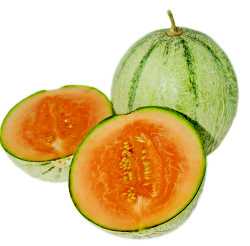Opinion: Listeria Charges Could Set A Dangerous Precedent

Who in the produce and agricultural communities could not regret 2011’s listeria outbreak in cantaloupe and subsequent loss of 33 lives. Yet a dangerous precedent could be set with last week’s arrest and arraignment of growers Eric and Ryan Jensen whose Colorado packinghouse has been linked to the outbreak.
Many Americans supportive of stiff charges against the growers – to which they have pleaded not guilty and have been released on bond – may have visions of Upton Sinclair’s 1906 novel The Jungle and its exposé of unsanitary conditions in Chicago packinghouses. The result of that investigation was creation of the Pure Food and Drug Act and, ultimately, the U.S. Food and Drug Administration (FDA). But the objects of scorn then were the “Big Four” consolidated meatpacking companies on whose watch “contaminated meat products were processed, doctored by chemicals, and mislabeled for sale to the public” – certainly a very high-level “adulteration of food” as the charge against the Jensens reads.
The Jensens’ packing operation was by many accounts negligent in failing to ensure their cantaloupe would be adequately cleaned with anti-bacterial solutions. But as reported by the Wall Street Journal, the Jensens acknowledged through their lawyer that food producers and processors “must be strictly liable for the safety of our food supply.” They said the charges did not suggest that they knew anything about contamination.
And significantly, even a lawyer representing victims of the outbreak called the charges unprecedented in the absence of evidence that the growers knowingly sold contaminated cantaloupe.
Ignorance, as the saying goes, is no excuse for the law. But willful, Jungle-esque intent to cut corners for significant financial gain and to intentionally mislead consumers – to “adulterate food,” as in, “to make impure by adding extraneous, improper, or inferior ingredients” – is a transgression of a higher order than what the Jensens have committed. The distinction is between negligence and willful, even malicious intent.
Food production and processing are risk-filled endeavors that do not occur in easily controllable environments. Produce is harvested and processed quickly while it’s fresh, according to consumer demands. Threats to food safety can and sometimes do arise as a result. In fact, a study by UC-Davis more than 20 years ago found that the more cantaloupe comes into contact with people or “common surfaces,” the more risk it runs of contamination.
If growers are held accountable for every lapse in food safety, we may find fewer and fewer candidates willing to join the occupation. (And the Jensens, ages 37 and 33, regrettably are part of the next generation of farmers.) Draconian liability placed on agricultural producers could lead to increased import of fresh fruits and vegetables from other countries, where production of safe food is often less guaranteed than it is here in the U.S. It could also help to kill the “locally grown” movement among consumers just as it’s beginning.
Will the Jensen brothers be punished? They already have been – with bankruptcy. If found guilty at their trial which begins in December, they could face up to a year in federal prison and a fine of $250,000 for each charge. Rather than placing most of the onus for the safety of produce on the grower, public and regulatory attention needs to swing to practical, real-world implementation of the Food Safety Modernization Act and its stakeholder-shared goal – across the food production, distribution and retailing channel – of preventing contamination rather than responding to it.










